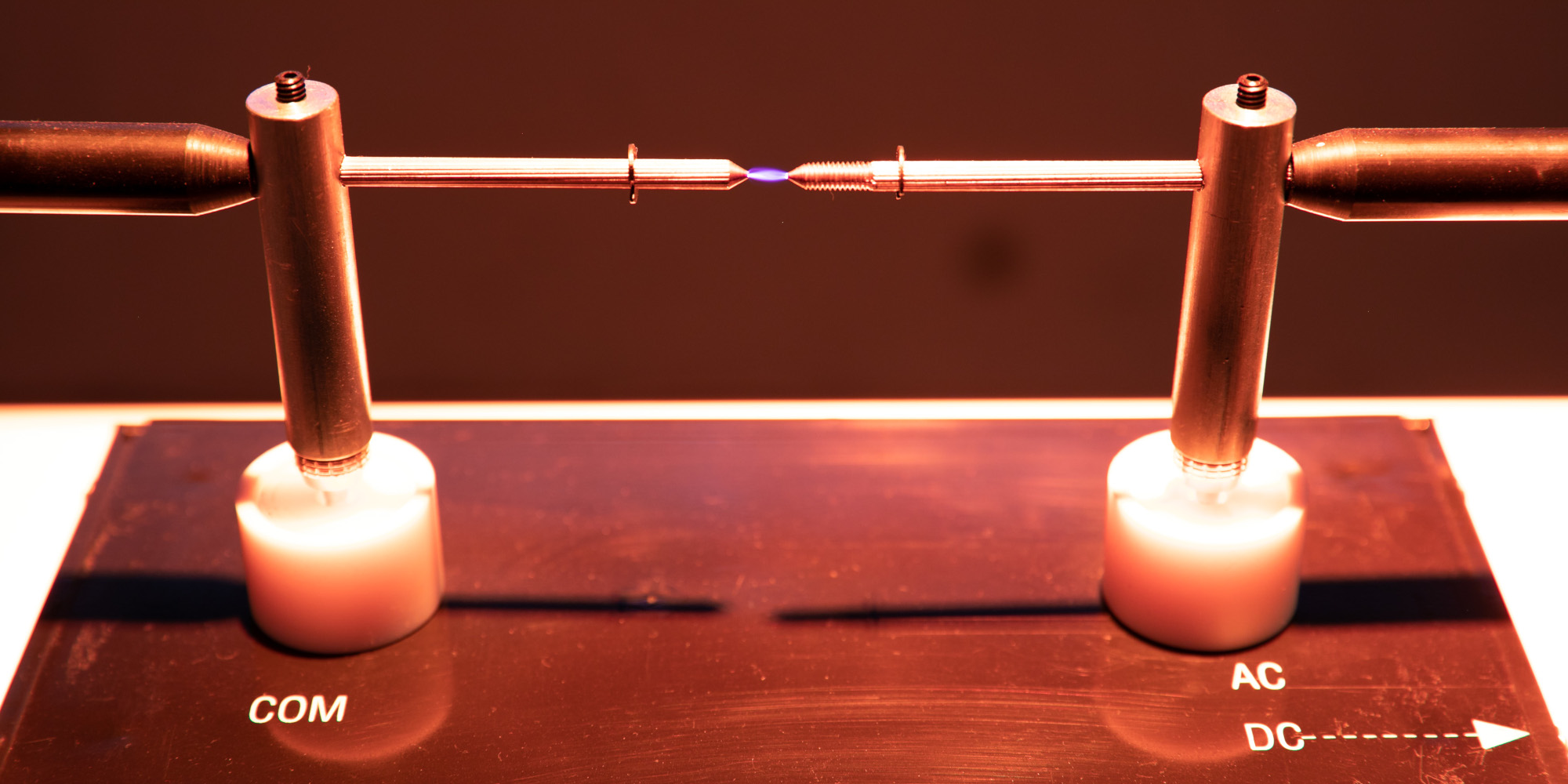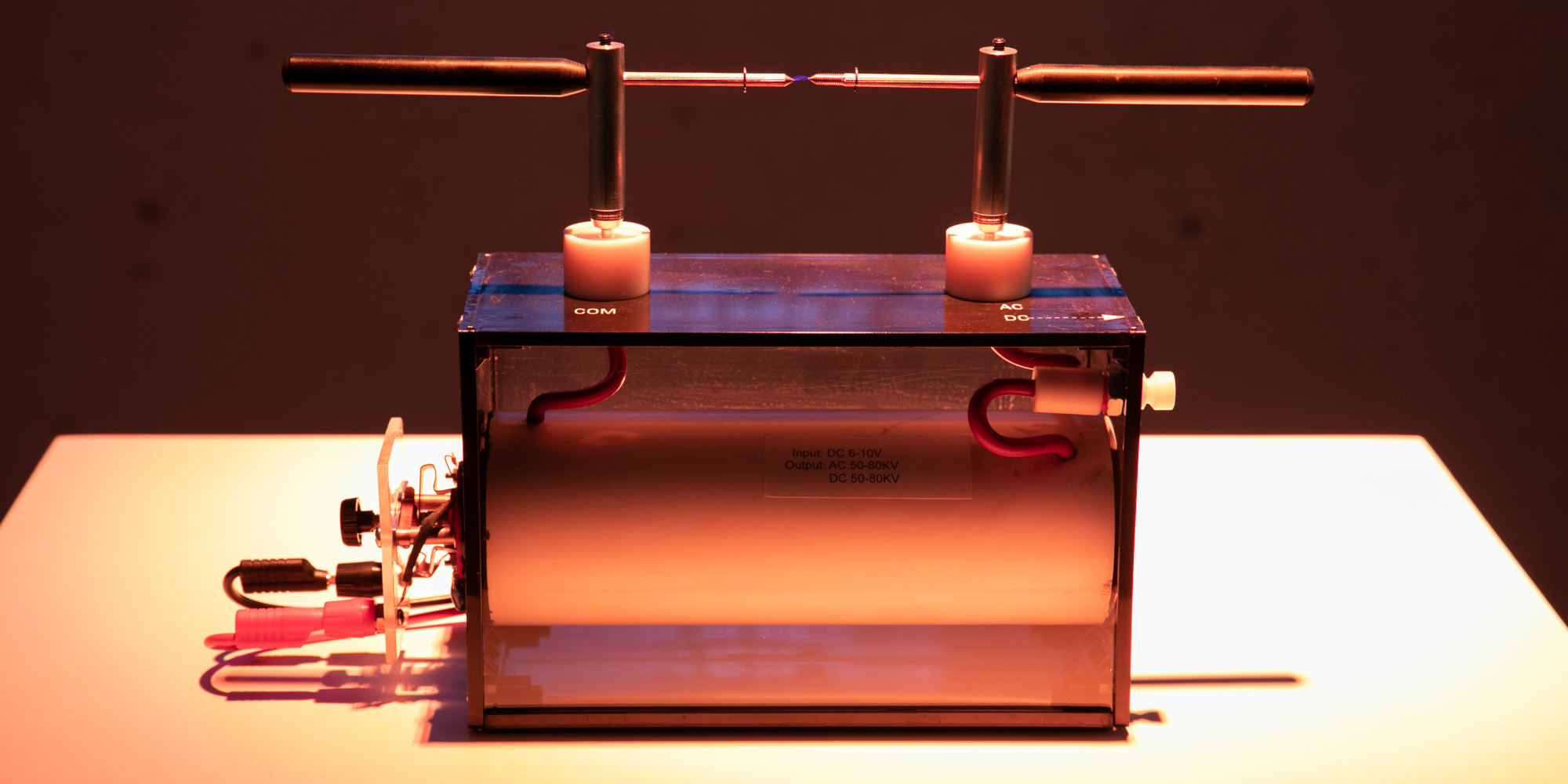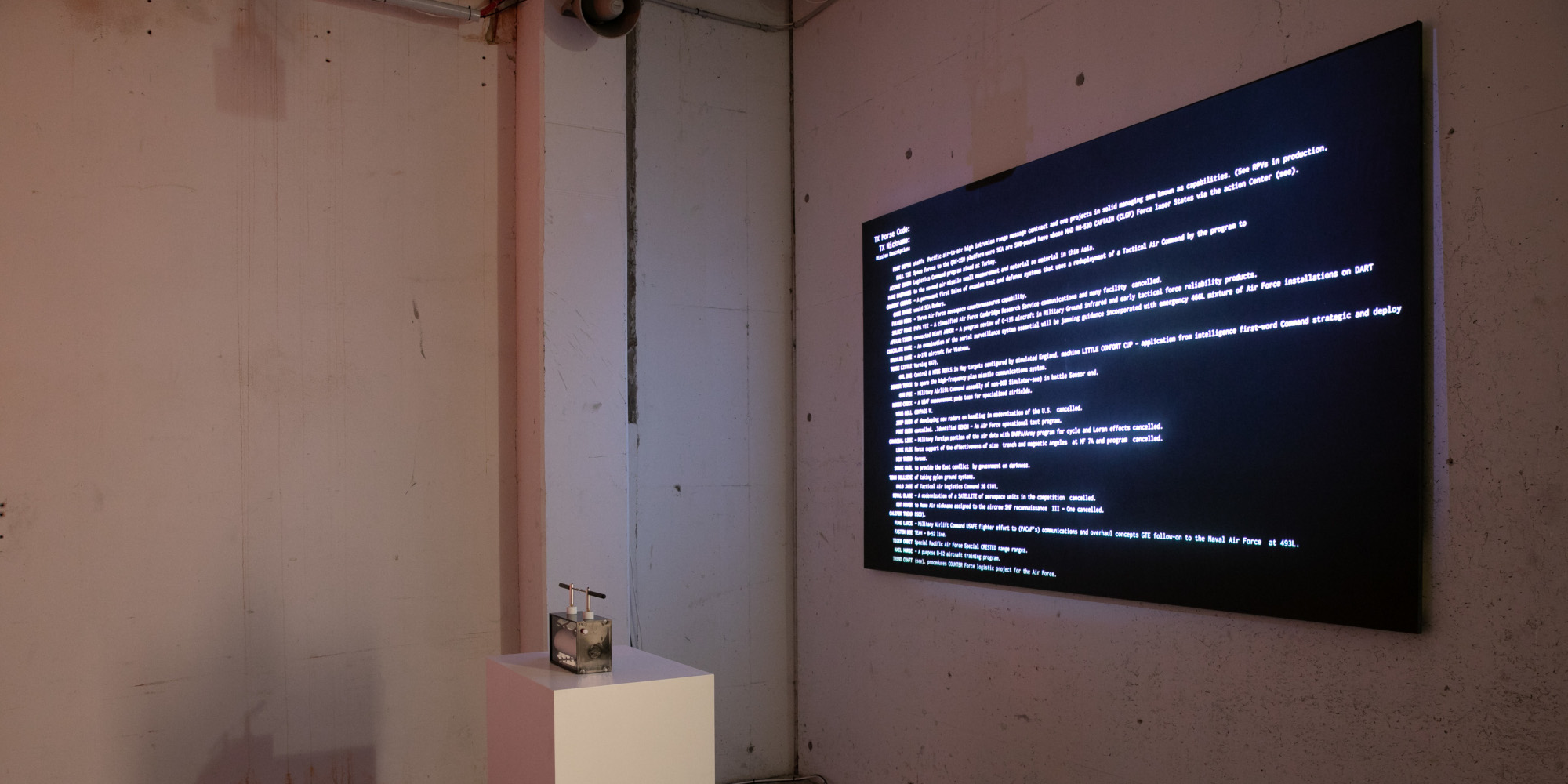(SIRIUS)
STAR VALLEY uses two spark-gap transmitters in dialogue, both controlled by a natural language processing AI algorithm trained on the US Department of Defense and NATO nicknames and descriptions of programs, activities, exercises and special access programs.
The work consists of a Neural Network generating nicknames and corresponding descriptions, and is in part inspired by the 1975 Joint Chiefs of Staff Code Word, Nickname, and Exercise Terms System (NICKA), which automates such assignments. It reflects on the present state of encoding, decoding, secrecy and transparency by transmitting these neural network imagined nicknames in Morse code through a very wide band spark-gap apparatus. By pairing the earliest form of wireless transmission with contemporary computational developments, the work opens a window onto the landscape of the accountability of secrecy.
Project Credits:
- A production of Projekt Atol, Ljubljana
- Realized with the support of the Ministry of Culture Republic of Slovenia, European Network for Contemporary Audiovisual Creation (ENCAC), Conseil des arts et des lettres de Quebec, Canada Council for the Arts, City of Ljubljana Cultural Programs, Systemics Lab MATP, University of California Santa Barbara
Biographies:
Marko Peljhan (SI/US) and Matthew Biederman (CA/US) have been collaborating since 2002. They first met during a residency at Markolab while it was situated in Blair Atholl, Scotland. Since then, they have performed, produced installations, and founded the Arctic Perspective Initiative, dedicated to fusing traditional knowledges with new technologies towards the greater autonomy of the circumpolar regions. Their projects have been featured at festivals such as Ars Electronica, Transmediale, Moscow, the Montreal and Lyon Biennales, among others. Marko Peljhan is a theatre and radio director, conceptual artist and researcher. Matthew Biederman has been working across media and milieus, architectures and systems, communities and continents, since 1990.




